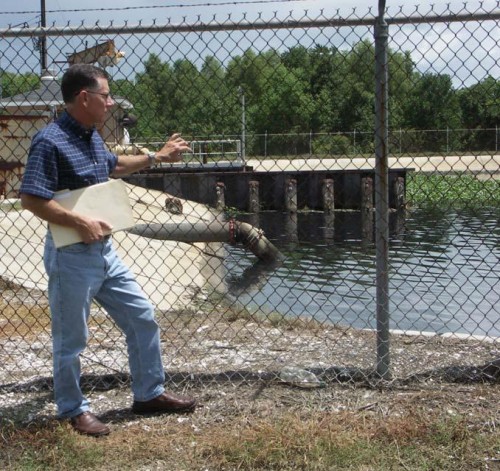
Residents raising a stink brings results on sewage odor
July 26, 2011Samuel Harvey Sr.
July 28, 2011Jobs, deficit, economy, these are words you’re certain to hear echoing through the Capitol this month. Yet as debt debates and negotiations continue, too few are talking about one clear step that could help create jobs immediately: allowing our energy industry to get back to work.
This would not even take an act of Congress. It would only require the Department of the Interior to resume issuing deepwater drilling permits in the Gulf of Mexico at the pace they were at before President Obama’s formal moratorium. The only thing standing in the way is the Obama administration’s political agenda.
It was discouraging news last week when the 10th deepwater drilling rig picked up and left the Gulf because federal offshore permitting has fallen off a cliff. The resulting impact on Louisiana families, jobs and domestic energy production is causing a lot of pain along our Gulf Coast.
Restoring these energy jobs and creating capital is not a complex budgetary equation; it’s simple economics. We have abundant resources, and allowing access to them will create jobs and generate revenue.
The United States is the only country in the world that has declared that more than 90 percent of our own resources are off-limits. According to the Congressional Research Service, no country in the world possesses the combined natural resources (coal, oil, natural gas, etc.) that the United States has. Much of the gridlock is the result of the current administration confounding nearly all permitting processes at the Environmental Protection Agency and Department of Interior.
Take the Outer Continental Shelf, for example. According to thorough economic analysis by the American Energy Alliance, the potential resources in the OCS alone could sustain “1.2 million new, full-time jobs per year over 30 years” as well as “contribute more than $8 trillion to GDP and supply more than $2.2 trillion in incremental tax receipts.” These jobs do not require subsidies or mandates; access to the OCS merely needs to be authorized and permits granted.
How refreshing do those numbers sound while dealing with our $14 trillion national debt and 9.2 percent unemployment?
That’s why I’ve introduced legislation to open up our resources to create jobs and spur the economy. 3-D: The Domestic Jobs, Domestic Energy, and Deficit Reduction Act of 2011 would create more than 2 million jobs, $10 trillion in economic activity and $2 trillion in federal tax receipts (according to conservative 30-year estimates) by unleashing America’s vast domestic energy potential. My bill has 29 co-sponsors in the Senate, and our companion bill in the House has 37 co-sponsors.
In addition to my 3-D bill, I’ve kept my boot on the neck of the administration to fight for access to resources and new permits, and I won’t let it off.
In May, when Interior Secretary Ken Salazar, with the help of Sen. Harry Reid (D-Nev.), asked Congress to approve a nearly $20,000 per year pay raise, I blocked it. Given the completely unsatisfactory pace of the issuance of new deepwater exploratory permits in the Gulf, I don’t believe the secretary deserves it.
Overall, deep- and shallow-water offshore permits are still being issued at an anemic pace, 40 percent of pre-BP oil-spill levels, and today only two new exploration plans have been approved. We must do better by American energy consumers and workers.
There’s no need to put aside the debt-limit talks. Our congressional leaders and the president can continue those. But there is no excuse for the administration to meanwhile forget about our Gulf Coast and our energy economy. Issuing permits will equal jobs, a boost to the economy and revenue to the Treasury, three things everyone in Washington is looking for.
Editor’s Note: Vitter serves on the Senate Environment and Public Works Committee. His above op-ed first appeared in the July 20 issue of “The Hill.”






